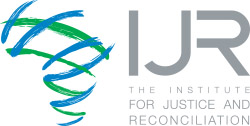Peacebuilding Interventions Programme
The IJR Peacebuilding Interventions Programme focuses on strengthening community-led peacebuilding through transitional justice processes, evidence-based research, capacity development, informing policy and technical assistance to governments, inter-governmental organisations and civil society. In this regard, the Programme actively works to support the implementation of the African Union Transitional Justice Policy (AUTJP), across Member States to guide their own internal gender-sensitive transitional justice and peacebuilding processes. The Programme’s work is informed the insights gained from working with governmental stakeholders and local level communities in countries such as Burundi, Central African Republic, Eastern DRC, Eswatini, Ethiopia, Lesotho, Mozambique, South Sudan, South Africa and Zimbabwe. The Programme has acquired a significant track-record through its work on interventions in Lesotho, Ghana, Kenya, Nigeria, Rwanda, and Uganda. Internationally, IJR has provided strategic and technical advice to stakeholders in Colombia, South Korea, Sri Lanka, Thailand, UK, and USA. The Programme continues to serve as trusted advisor to key decision makers and inter-governmental actors on transitional justice and peacebuilding initiatives, and engages with the African Union (AU), SADC, EAC, IGAD, ICGLR, European Union (EU), and the United Nations system. In particular, the PBI Programme has partnered with the UN Development Programme (UNDP) on a number of in-country interventions in Africa. This Programme is achieving its impact by enhancing and enabling African governments, societies as well as inter-governmental organisations to implement their own transitional justice and peacebuilding processes.
Sustained Dialogues Programme
The programme facilitates sustained interventions that are human-centred, to restore relationships destroyed by slavery, colonialism and apartheid. Using a Transitional Justice lens, we centre the experience of survivors and victims to promote the restoration of human dignity. We use a trauma-informed approach, recognising that trauma (intergenerational and continuing) has been side-lined in peace-building in the past. Recognising the need to acknowledge the wounds of individuals and communities, we use story-telling and creative dialogue methods to co-create safe spaces for participants to create networks of solidarity and to advocate for their own needs as individuals and communities. The unfinished business of the TRC is supported through the South African Coalition for Transitional Justice. The priority areas are reparations for victims and the prosecution of apartheid-era perpetrators.
Communication, Advocacy & Strategy Programme
The Communication, Advocacy and Strategy programme at the IJR drives all cross-cutting issues within the organisation, works closely with programmes and assists with planning, coordination and fundraising capacity.
Research and Policy Programme
Through original public opinion research and enquiry about the linkages between development, social cohesion, and reconciliation, the Research and Policy (RP) Programme of the IJR, seeks to provide an empirical basis for the organisation’s interventions, and the policy positions that it champions across the African continent.
Special Projects: Women Peace and Security (WPS)
As the Institute for Justice and Reconciliation (IJR), we are proud to be actively engaged in South Africa’s journey towards gender equality, peace, and security through our collaboration on the National Action Plan (NAP) on Women Peace and Security (WPS). This visionary plan, adopted by South Africa in August 2020 and officially launched in March 2021, stands as a significant testament to our collective commitment to building a safer and more peaceful society.
The South African NAP on WPS, a comprehensive roadmap spanning the years 2020 to 2025, aligns with the principles enshrined in the United Nations Security Resolution (UNSCR) 1325, focusing on four critical pillars: Participation, Protection, Prevention, and Relief and Recovery. It champions the vital notion that human security and state security are inextricably linked, breaking free from the conventional state-centric approaches to peace and security. This recognition reinforces the fundamental idea that women can only truly thrive in environments where safety and security prevail for all.
Moreover, the NAP challenges the stereotypical portrayal of women as mere victims in conflicts. Instead, it underscores the transformative potential of viewing women as active agents in the complex process of building and sustaining peace. This perspective shift, from victimhood to agency, is a significant stride towards achieving gender equality and justice.
